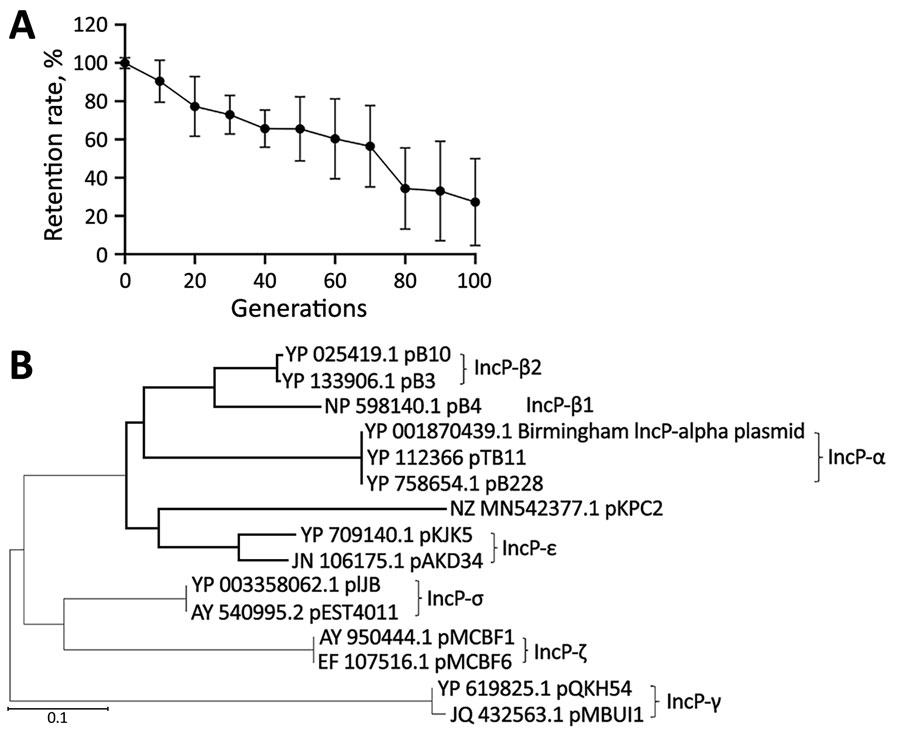Volume 28, Number 8—August 2022
Research
Dominant Carbapenemase-Encoding Plasmids in Clinical Enterobacterales Isolates and Hypervirulent Klebsiella pneumoniae, Singapore
Figure 5

Figure 5. Plasmid incompatibility group analysis of pKPC2 carbapenemase-encoding plasmid in clinical Enterobacterales isolates and hypervirulent Klebsiella pneumoniae, Singapore. A) Stability of pKPC2KmR in Escherichia coli MG1655 harboring pRK2-AraE plasmid from IncP incompatibility group. Symbols indicate means and error bars indicate SDs from 3 independent experiments. B) Phylogenetic comparison of pKPC2 trfA replicon with other IncP plasmids among isolates. Scale bar indicates nucleotide substitutions per site.
Page created: June 22, 2022
Page updated: July 20, 2022
Page reviewed: July 20, 2022
The conclusions, findings, and opinions expressed by authors contributing to this journal do not necessarily reflect the official position of the U.S. Department of Health and Human Services, the Public Health Service, the Centers for Disease Control and Prevention, or the authors' affiliated institutions. Use of trade names is for identification only and does not imply endorsement by any of the groups named above.